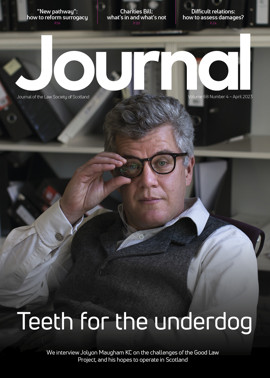Reading for pleasure: April 2023
The Bookseller of Inverness
S G Maclean (Quercus: £16.99; e-book £5.49)
Anyone familiar with Church Street in Inverness will immediately be drawn into this book. What is now Leakey’s secondhand bookshop is on the site of the Gaelic Church into which the Jacobites were herded after the battle at Culloden and then trooped out to be shot in the neighbouring bookshop. S G Maclean sets Iain MacGillivray’s bookshop in Church Street, surrounded as it is by taverns, a hotel, and milliner and confectioner.
Set in 1752, seven years after the last land battle on UK soil, we find ourselves with MacGillivray in his bookshop. A stranger looks through the library of the Old Fox, Lord Lovat, following his execution, which MacGillivray has purchased. The same stranger is found dead in the shop a few days later, with a dagger onto which is tied a white cockade: the sign of the Jacobites. So opens a tale of intrigue, revenge and plots being hatched to see the King over the water return to Scotland for one last throw of the dice to sit atop the throne.
The cultural life of Inverness is beautifully recreated: dances, the grandes dames sitting in their house with servants, music being provided by MacGillivray. The back stories of the main characters are neatly woven into the story. We follow MacGillivray as he joins other clansmen around Inverness while the narrative builds to a superb denouement. This is a terrific story, well crafted and utterly compelling.
The Berlin Gambit
David O’Donnell (Polygon: £9.99; e-book £4.27)
This is the debut novel of Scottish solicitor David O’Donnell, who in the postscript tells us his favourite country to visit is Germany. The author has clearly done his research and captures Nazi Germany well. The novel centres on the assassination of Reinhard Heydrich, who chaired the Wannsee Conference which formalised the plans for the “Final Solution”. Heydrich was assassinated in Prague on 27 May 1942 at the hands of Czech resistance members Jozef Gabčik and Jan Kubiš, who themselves were killed within the St Cyril and Methodius Cathedral there. The cathedral has a memorial to the men and ought to be visited. The towns of Lidice and Ležaky were destroyed and wiped off the map.
Against this factual background, O’Donnell has woven a well crafted story which sees Germany’s greatest detective, Chief Investigator Rolf Schneider, directed by Hitler to investigate Heydrich’s death. He is, naturally, told by Himmler that he should lightly make enquiry and reach the same conclusion as the SS reached in their investigation into the assassination of Himmler’s deputy. Schneider’s investigation goes far wider and sees him turn his attention onto Himmler. Why is Himmler sending secret messages abroad? Why is he intent on recovering papers held by Heydrich, which have disappeared? Schneider comes under intolerable pressure but, being a “Good German”, resists with all he can, placing himself and those around him in danger. In a race against time, the narrative unfolds satisfyingly. The story develops, drawing in other contemporary events and the horror Schneider faces. We await with interest what O’Donnell has to offer next.
Perspectives
Features
Briefings
- Criminal court: Towards proper control
- Planning: NPF4 – an emerging housing issue
- Insolvency: Court confirms overseas winding up approach
- Tax: R&D relief – welcome changes but outlook uncertain
- Immigration: Family reunions given new rules
- Scottish Solicitors' Discipline Tribunal
- In-house: Support to suit






